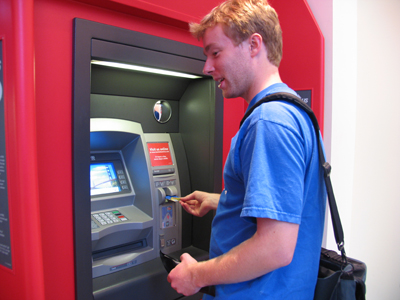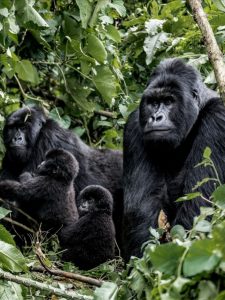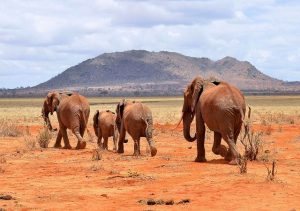Can I Access an ATM on My Safari in Uganda?
Overview
Can I Access an ATM on My Safari in Uganda? When embarking on a safari in Uganda, proper financial planning is essential, and one common question travelers ask is, “Can I access an ATM during my safari?” The short answer is yes, but with some important considerations. While ATMs are readily available in major cities and towns, they become increasingly scarce in remote areas, especially near national parks. In this guide, we’ll walk you through where you can find ATMs, how to prepare financially for your safari, and useful tips for managing cash during your adventure.
1. ATMs in Major Cities and Towns
Before heading into Uganda’s wilderness, you’ll likely spend some time in major cities such as Kampala or Entebbe, where ATMs are widely available.
Kampala
As Uganda’s capital city, Kampala offers a variety of ATMs from major banks such as Stanbic Bank, Absa Bank, Centenary Bank, Equity Bank, and DFCU. These banks’ ATMs accept Visa and Mastercard, which are the most commonly used international cards. You’ll find ATMs at shopping malls, bank branches, and in many business areas.
Entebbe
If you’re flying into Uganda, Entebbe is home to the country’s main international airport. There are several ATMs both at the airport and in town, allowing you to withdraw local currency (Ugandan Shillings) as you begin your journey. This is an ideal location to withdraw cash before venturing further into the country.
Jinja
Known for its proximity to the source of the Nile River, Jinja is a popular destination for both adventure travelers and safari-goers. ATMs from major banks are available in Jinja’s town center, providing easy access to cash if you’re passing through on your way to Eastern Uganda or the national parks.
Mbarara, Fort Portal, and Gulu
These are key towns near national parks like Queen Elizabeth National Park and Kibale Forest National Park. You’ll find ATMs here as well, particularly at bank branches. Fort Portal, for instance, serves as a gateway to Rwenzori Mountains and Kibale Forest, so it’s a convenient stop to access cash before entering more remote areas.
2. ATMs Near National Parks
Once you venture into Uganda’s national parks, access to ATMs becomes limited. Many national parks and wildlife reserves are located in remote areas where financial infrastructure is not as developed. Here’s what to expect:
Bwindi Impenetrable National Park
For those heading out for gorilla trekking, the nearest ATMs are located in Kabale and Kisoro towns, both of which are approximately 1-2 hours from the park depending on your trekking sector. It’s advisable to withdraw enough cash before you leave these towns as the park itself and its surrounding areas do not have ATMs.
Queen Elizabeth National Park
The closest town with ATM access is Kasese, which lies about an hour from the park’s main gate. Kasese has ATMs from Stanbic, Centenary, and other major banks. Since Queen Elizabeth National Park is relatively close to civilization, you can make a stop in Kasese for any last-minute cash withdrawals before heading into the park.
Murchison Falls National Park
Masindi and Pakwach towns are the nearest locations where you can find ATMs. However, these towns are about 2-3 hours away from Murchison Falls National Park. It’s best to withdraw cash in Kampala or Entebbe before your journey north, as the park itself lacks ATM facilities.
Kibale Forest National Park
For those trekking chimpanzees, the town of Fort Portal is your best bet for accessing an ATM. Fort Portal is about an hour’s drive from the park and has a number of ATMs available, making it a good place to prepare financially before your trek.
Kidepo Valley National Park
As one of the most remote parks in Uganda, Kidepo has no nearby ATM facilities. Kitgum or Gulu are the closest major towns where you can withdraw cash, but both are quite far from the park. Therefore, it’s essential to withdraw enough money in Kampala or Entebbe before heading north to Kidepo.
3. Important Tips for Managing Cash During Your Safari
a) Plan Ahead
While you may find ATMs in cities and larger towns, it’s crucial to plan ahead if your safari includes visits to remote national parks. Ensure that you withdraw sufficient cash before leaving these urban areas, as access to ATMs will be scarce once you’re on safari.
b) Carry Some Cash in Local Currency
Most businesses and services within national parks, including lodges, small shops, and local guides, prefer transactions in Ugandan Shillings (UGX). It’s helpful to carry cash in smaller denominations for tips, local purchases, and small fees. Large denominations might not be easily changed, especially in rural areas.
c) Credit and Debit Cards
While some high-end lodges and hotels in or near national parks accept Visa and Mastercard, it’s not guaranteed that all establishments will accept cards, especially in more remote locations. Having cash on hand ensures that you can make purchases or pay for services even if card facilities are unavailable.
d) ATM Withdrawal Limits
Note that Ugandan ATMs may have daily withdrawal limits, often around 1-2 million UGX (approx. $270 – $540 depending on the exchange rate). If you need larger amounts of cash, you may need to make multiple withdrawals, or plan to use a combination of cash and card for payments.
e) Inform Your Bank
Before leaving for your safari, inform your bank about your travel plans. This helps prevent your card from being blocked for suspicious activity when using ATMs abroad. Additionally, check with your bank about international transaction fees to avoid surprises.
Conclusion
While ATMs are accessible in major towns and cities across Uganda, they become increasingly scarce as you head into more remote national parks. For a smooth and stress-free safari, plan to withdraw sufficient cash before leaving urban centers like Kampala, Entebbe, or Fort Portal. Carrying a combination of cash and cards will ensure you’re well-prepared for all situations, whether you’re tipping a guide, paying for a meal, or purchasing local crafts. By planning ahead, you can focus on enjoying your Ugandan adventure without worrying about financial logistics.




